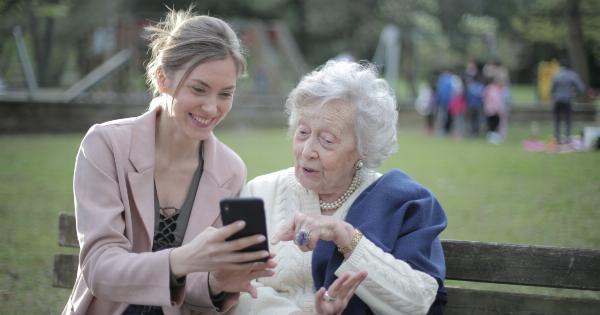Breakups can be emotionally challenging and often leave us feeling vulnerable and lost.
While some people choose to sever all ties with their former partners, there are others who prefer to maintain contact, even after the romantic relationship has ended. This curious behavior begs the question: why do we occasionally keep ex-partners close?.
The Comfort of Familiarity
One of the reasons individuals maintain contact with ex-partners is the comfort of familiarity.
After spending a significant amount of time with a person, sharing experiences, and developing a deep emotional connection, it can be difficult to completely let go. Staying in touch allows us to hold onto that sense of familiarity, preventing us from feeling alone or adrift in the aftermath of the breakup.
A Source of Emotional Support
Another reason why people keep ex-partners close is the need for emotional support.
Going through a breakup can be emotionally distressing, and having someone who knows us intimately and understands our feelings can provide solace during this difficult time. Ex-partners can serve as a trusted shoulder to lean on and offer support, even if the romantic relationship is no longer intact.
Nostalgia and Fond Memories
Human beings have a tendency to romanticize the past and hold onto nostalgic memories. Even if a relationship ended for valid reasons, the positive memories and moments shared with an ex-partner may still hold a special place in our hearts.
Staying connected with them allows us to revisit those memories and bask in the warmth of nostalgia, providing a sense of comfort and security.
Unresolved Feelings and Ambiguous Closure
Not all breakups end with closure, leaving loose ends that can haunt our thoughts. By keeping an ex-partner close, we may hope to find the resolution that initially eluded us, seeking answers or a deeper understanding of the reasons behind the breakup.
This behavior stems from a desire for closure and a fear of unfinished business.
Opportunity for Reconciliation
For some individuals, maintaining contact with an ex-partner represents a glimmer of hope for a potential future reconciliation. They may believe that by staying connected, they can rekindle the romantic flame and rebuild the relationship.
This desire for a second chance fuels the decision to keep ex-partners close, in the hopes of finding love once again.
Preventing Regret and What-Ifs
Regret and the fear of missed opportunities often play a significant role in why we keep ex-partners close. By maintaining contact, we can alleviate the “what-if” questions that may plague our minds.
It provides a sense of security, knowing that we still have a connection with our ex-partners and can explore those possibilities, even if only on a theoretical level.
Fulfilling Unmet Intellectual or Emotional Needs
Sometimes, we discover that our ex-partners fulfill certain intellectual or emotional needs that are difficult to find elsewhere. They may have been our confidants, our intellectual equals, or shared unique interests that enriched our lives.
In such cases, keeping them close allows us to continue engaging with these aspects, even if the romantic aspect of the relationship has ended.
Seeking Validation and Boosting Self-Esteem
Remaining connected with an ex-partner can also serve as a means of seeking validation and boosting our self-esteem following a breakup.
The attention and affirmation received from an ex can reaffirm our desirability and worth, temporarily alleviating feelings of rejection or inadequacy resulting from the end of the relationship.
Sharing Mutual Responsibilities
In some cases, individuals choose to keep ex-partners close to ensure the smooth handling of mutual responsibilities or joint ventures that were born during the relationship.
This can include co-parenting children, maintaining joint finances or investments, or even sharing ownership of a business. In these situations, regular contact with the ex-partner becomes a practical necessity.
Emotional Attachment and Comfort
Lastly, one of the most fundamental reasons why we keep ex-partners close is the emotional attachment we still feel towards them.
A deep emotional bond can be challenging to sever abruptly, and staying connected provides a sense of emotional closeness and comfort. It helps us navigate the transition after a breakup and soothes the pain of separation.
Conclusion
While it may seem puzzling to some, maintaining contact with ex-partners is a common phenomenon that can be attributed to various psychological motivations.
The comfort of familiarity, emotional support, nostalgia, unresolved feelings, and the hope for reconciliation are just a few reasons why individuals choose to keep their exes close. As complex emotional beings, it is essential to understand and respect the choices people make regarding their post-breakup connections.





























